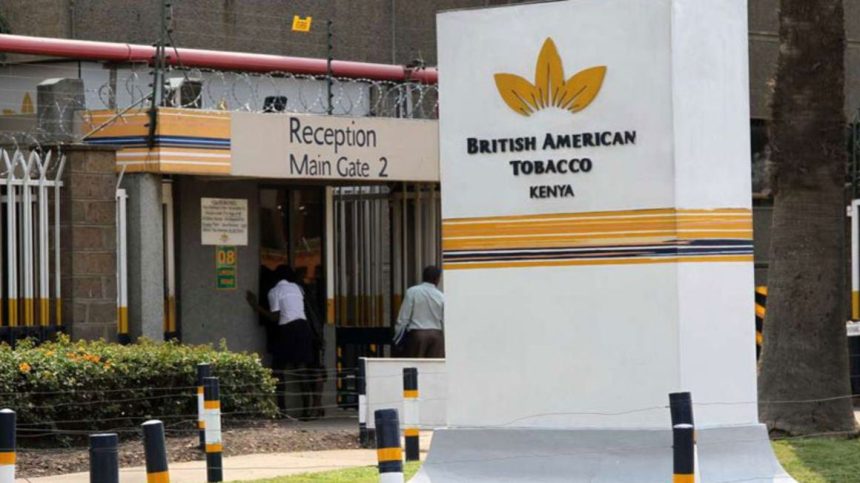Earnings for farmers contracted by British American Tobacco (BAT) Kenya have dropped at the fastest pace in more than five years largely on falling production, the firm says in its latest annual filing to shareholders.
BAT Kenya says payment to its contracted leaf farmers dropped 21.17 percent to Sh946 million last year, down from Sh1.2 billion in 2021.
This reflects the growing shift in tobacco-growing zones to more productive and sustainable crops.
Read: BAT posts record Sh6.9 billion profit, raises dividend
The pay was the lowest since Sh831 million in 2017, according to an analysis of the company books, signalling falling tobacco leaf yields over the years amid the reduced domestic sale of cigarettes.
The publicly-traded firm said tobacco leaf yield by farmers –largely concentrated in Migori, Bungoma, Meru and Busia counties – dropped 30.56 percent year-on-year to a new low of five million kilogrammes in 2022.
This means earnings per kilo averaged Sh189.20, a growth of 13.52 percent over Sh166.67 in 2021.
“We introduced elite tobacco seed varieties which guarantee better yield and disease resistance. To date, 53 percent of the tobacco planted is of the elite variety, which has significantly enhanced farmer’s fortunes,” BAT Kenya wrote in the 2022 annual report.
Farmers have been transitioning from tobacco to alternative higher-yielding crops like beans in recent years in projects funded by anti-tobacco organizations, including United Nations agencies like World Health Organization (WHO), the World Food Programme and the Food and Agriculture Organization (FAO).
The yield has fallen by nearly half from a recent high of 8.9 million kilogrammes in 2019.
BAT Kenya’s net profit in the review year grew 6.3 percent to Sh6.89 billion, with shareholders set for a total payout to Sh57 per share after a virtual annual general meeting scheduled for June 15.
“We believe that crop diversification can help mitigate agricultural economic risk by reducing farmers’ dependency on tobacco as a single source of income. This is especially important on the back of climate change impacts,” Mimi Mavuti, the head of business communication and sustainability for BAT Kenya, East and Southern Africa, said in a statement on May 29.
“Further, given that the tobacco crop is in the ground for only six months in a year, the subsistence crops enable farmers to drive food security and earn extra income from the sale of surplus harvest, as well as improve soil health.”
BAT’s contracted tobacco leaf farmers have shrunk by nearly two-thirds to 2,083 last year from 5,537 producers, according to the company reports.
Farmers ditching the crop –whose end-product has been linked to increased risk of contracting life-threatening diseases such as cancer as well as lung and heart diseases– are usually provided with farm inputs such as seeds and fertilizers by financiers like the UN-led Tobacco-Free Farms project.
The giant cigarette maker, whose parent is the world’s largest by sales, is investing heavily in a strategy aimed at keeping pace with health-conscious consumers who have been gradually moving away from tobacco smoking.
BAT Kenya has completed the building of the oral nicotine pouches manufacturing plant in Nairobi primarily targeting the 21-member Common Market for Eastern and Southern Africa (Comesa) bloc at a cost of Sh1.5 billion.
An additional Sh1 billion budget was earmarked for marketing and distribution campaigns for products consumed by placing between the upper lip and gum.
Read: BAT ties production of nicotine pouches to lower taxes
“To fully commercialise it [oral nicotine pouches factory], we need to have more confidence in the fiscal [taxation] and regulatory framework that is applied to these products,” Crispin Achola, the managing director of BAT Kenya, said in an interview in March.




